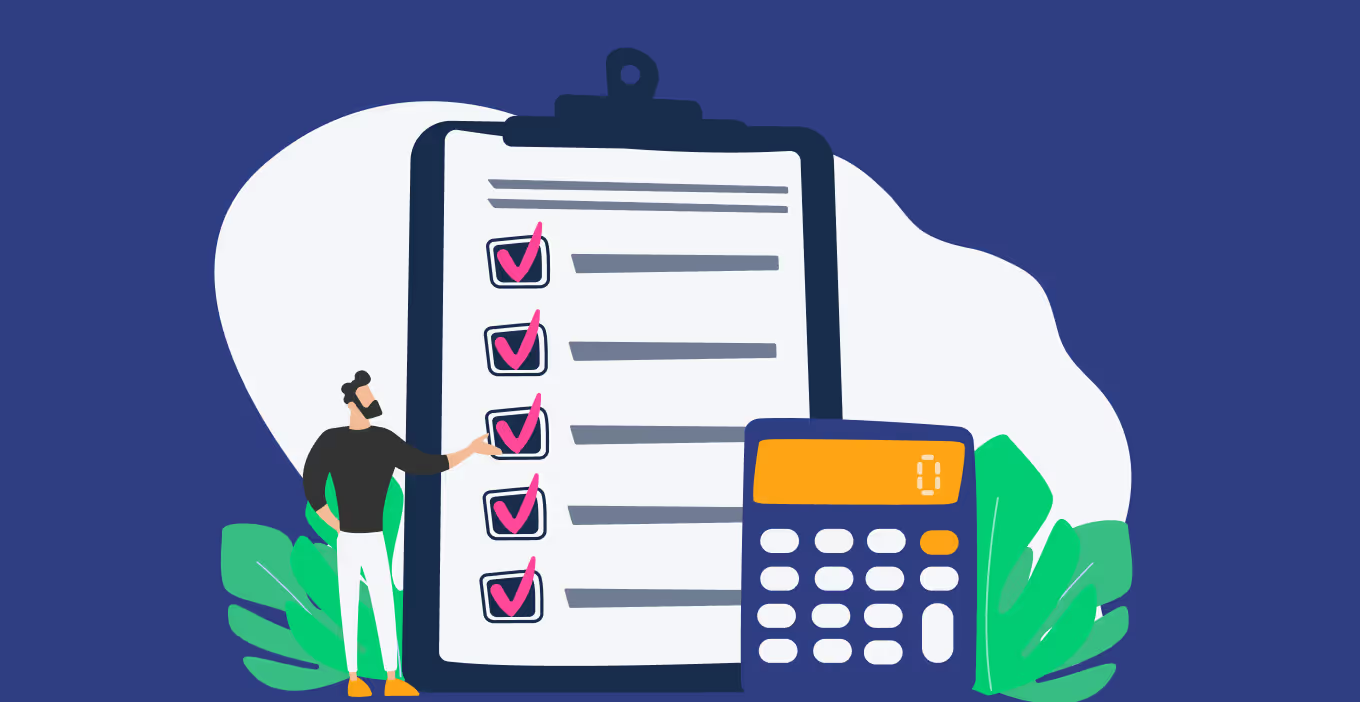If you are a member of a homeowners association, or are one of the HOA board members, there are many things that you need to make sure you are keeping up with.
Since one of the main obligations of every HOA is to maintain the community in good condition, it's important to know what to look out for. These things could range from the financials of the community, the cleanliness, or the overall environment.
Not sure what to look out for or what an HOA audit is? Below, we will go over everything you need to know about homeowners associations and how an audit works.
What is a homeowners association?
A homeowners association, or an HOA, is essentially a body of self-governing people that oversee several aspects of a community. Usually, members of these organizations will manage several tasks and responsibilities that are for the greater good of the community.
Most of these organizations are made up of volunteer property owners who gather for board meetings. These meetings are where the bulk of the organization’s decisions are made. Some of the most common tasks done by an HOA include collecting HOA fees and conducting inspections on every property. These inspections are meant to ensure that the community is kept in good shape year round.
Although there are many similarities among different homeowners associations, there always tend to be many differences. These differences could depend on the size of the community, the property type, and the financial status of the property owners. Typically, when the owners pay heftier HOA fees, they are offered a wider variety of services than those who pay less.
Also, similar to an actual business, an HOA can be audited. Below, we will discuss what it means for an HOA to be audited and how you can best prepare.
What is an HOA audit?
For any organization, an audit is the examination of that organization's internal controls and financials as stated in the annual report. Some of the things that are examined in an audit include a balance sheet, financial statements, governing documents, tax returns, and any other requested records.
These kinds of examinations are usually done by an individual or entity that is independent of the organization being audited. When it comes to an HOA, these audits can actually be very beneficial to the organization. The audit report can be used to better assess the state of the HOA. It can also be used to better understand what should be done to be better as an organization.
They can also be used to assure the property owners and managers that the HOA is actually doing its job. For this reason, HOAs must conduct a financial audit at least once a year.
Now that we know about the audit process, let's discuss the preparation for one. If you are part of a homeowners association’s board of directors, it is vital that you know exactly how to prepare for a financial audit. There are various documents and records that must be presented in the case of an audit.
If you are not sure about how to prepare for this event, you have come to the right place. Below, we have listed everything that you may need when it comes to preparing for your financial audit.
HOA Audit Checklist
To prepare for a financial audit, you must collect dozens of documents from the previous year. It is very important that you have all of these documents as it is going to give you and your HOA management a better idea of the state of the organization.

Governing Documents
Every HOA is required to have a certain set of documents called the governing documents. These documents basically dictate what rights the HOA has and what actions they are legally allowed to take. They also state the rules and regulations that every member of the HOA must abide by.
There are a few governing documents, each with a different level in a hierarchy. Listed below are the typical governing documents in hierarchical order.
Federal / State Law
The highest in the hierarchy is, you guess it, the law of the land. This is pretty straightforward since everyone has to follow these laws, and HOAs are not an exception. More specifically, the Federal Law sits at the top, followed by the State Law, and finally the local laws.
If an HOA is acting against the law, there could be a conflict between the organization and the community. For example, if an HOA is acting in a discriminatory way based on religion or sex, there could be a conflict with the Fair Housing Act.
Declaration of Covenants, Conditions, and Restrictions (CC Rs)
This document details all of the rights of the homeowners as well as the role that each individual HOA member will play in the organization.
Apart from outlining the rights of the homeowner, this document also states what rules they must abide by. For example, if the HOA requires that every home's grass be cut to a certain length, this is where those restrictions would be listed. This would also be where an HOA may dictate what color you may paint your home, if you may have pets, and where you park.
If a homeowner violates any of the terms on this document, they may face a collection of penalties. The most common penalty is a fine, but it may be escalated to suspension from common areas or 0a lawsuit.
Articles of Incorporation
In an HOA, the articles of incorporation are the documents that provide most of the information of the HOA. Some of the information that is contained in an HOA's articles of incorporation include the name, the declaration as a non-profit organization, and the individuals that are authorized to govern as part of the HOA.
The main purpose of these documents is to establish the HOA as a legal entity, not just a communal organization. Apart from this, the articles also include information about voters and about who is authorized to lead the HOA.
HOA Bylaws
The last on the list is the HOA bylaws. The main function of the HOA bylaws is to dictate how the HOA is run by its members. They also serve to describe the structure that the HOA will have in the community. They basically serve to provide the community with a clear description of how the organization presides over them and how they can be held accountable in those positions.
These bylaws are very important because they offer a clear description of how the operations of the HOA board members affect the community as a whole. The difference between the bylaws and the CC&Rs is that the bylaws are more concerned with the operational aspects of the organization whereas the CC&Rs are more concerned with the rights and responsibilities of the homeowners.
After collecting all of these governing documents in order, you may proceed to the rest of the documents, listed below.
Financial Records
Next on your HOA checklist should be a complete set of the organization's financial records. Many times, an HOA will have multiple financial audits throughout the year, which makes it easier to collect these documents.
The HOA’s financial records are essential as it is a great way to assess the financial health of the organization. Although not all HOAs have financial audits, some state laws require HOAs to prepare audited financial statements if their revenue is more than a certain amount.
When doing a financial audit, many organizations choose to hire a certified public accountant (CPA) to perform the audit. It is important for the organization to grant the CPA access to HOA records that pertain to the audit. By doing so, the CPA can offer a complete analysis of how the organization is performing financially.
Apart from examining bank statements, the annual HOA budget, vendor contracts, etc., the CPA is also responsible for examining the taxes that have been filed by the organization.
Taxes
One of the most important things that a CPA will examine when conducting a financial audit is the HOA’s taxes. Since taxes are required to be filed before a certain deadline, usually April 15th, most organizations choose to file their taxes ahead of time in order to have them ready for the annual audit.
One of the things that the CPA must review within the taxes is whether or not all of the accounting reflects accurate records of the HOA's spending, annual budget, revenue, and tax return. They must also review and ensure that all appropriate documents and forms, like form 1120 H, have been filled out and submitted correctly.
Once all of the financial records are in place, you can move on to the next set of documents that you will need for your HOA audit checklist.
Meetings
The last important thing that must be done when performing an audit is to plan out the annual meetings. Typically, HOAs hold three different kinds of meetings: a committee meeting, a board meeting, and an annual meeting. All of these meetings have different people that attend them and it is important that every board member, as well as the whole community, knows everything about the meetings.
During these meetings, it is important to discuss various aspects of the organization, such as a property management maintenance checklist, insurance coverage, compliance with state laws and regulations, and many more. These meetings could also be where a new board is elected or where the association management is changed around.
Since there are so many factors to these meetings, it is crucial to keep an updated record of all of them and make sure that the whole association is aware of what is going on.
Conclusion
In conclusion, there are various things that must be done when preparing an audit for an HOA. There are dozens of different documents that must be collected and analyzed before even beginning the audit.
If you are not sure about how to conduct this kind of audit for your homeowner's association, it is advised that you seek professional help. Since this process involves various legal documents pertaining to your association, it is vital that it is done correctly and with caution.
In need of professional help? Visit DoorLoop today to find tons of information on HOAs, as well as the best all-in-one property management software to help you stay HOA-compliant!
However, if you follow all of the guidelines outlined in this article, you will surely be ready to prepare for your next audit and have no problem at all.





























![Apartment Pool Opening Letter [Free Template]](https://cdn.prod.website-files.com/5f18a24d02bace2ac2d05bac/66a3a05282efede81e8df1e3_apartment-pool-opening-letter-thumbnail-376x194.svg)


.svg)
.svg)

